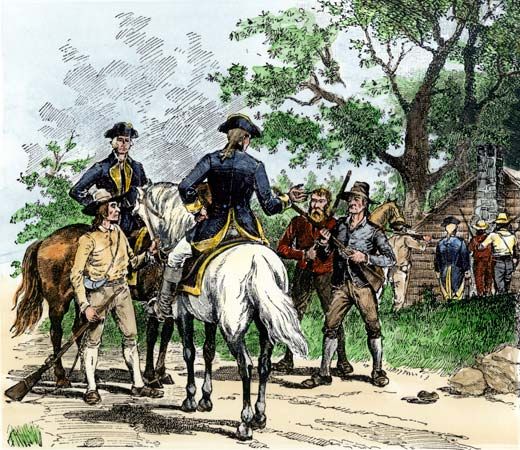 The Whiskey Rebellion of 1794 was an uprising in western Pennsylvania. It challenged federal taxation in the states. The rebellion was the first serious domestic crisis that George Washington faced as U.S. president.
The Whiskey Rebellion of 1794 was an uprising in western Pennsylvania. It challenged federal taxation in the states. The rebellion was the first serious domestic crisis that George Washington faced as U.S. president.
To help pay the national debt, U.S. Treasury Secretary Alexander Hamilton proposed a tax on whiskey. In 1791 the U.S. Congress passed a law that gave the federal government permission to collect taxes on distilled whiskey. Farmers in western Pennsylvania who made whiskey were outraged by the tax. They attacked the federal officers who attempted to collect the tax.
In July 1794 about 500 men attacked and burned the home of the local tax inspector. The following month Washington ordered the rebels to return home. When negotiations between federal officers and the farmers failed, Washington sent 13,000 militia troops into western Pennsylvania. By the time the troops moved into the area, the rebellion had collapsed. There were no confrontations.
The outcome of the Whiskey Rebellion was a huge step for U.S. domestic policy. The federal government had won support from the state governments to enforce federal laws within the states.




